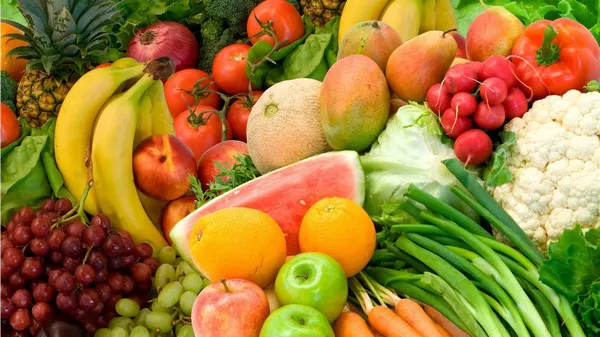Pregnancy is a transformative journey, filled with countless decisions to ensure the health and well-being of both the mother and the developing baby. One crucial aspect of this journey is understanding which vitamins and supplements are safe to take during pregnancy and, equally important, which ones should be avoided. In this comprehensive guide, we will delve into the vitamins and supplements that expectant mothers should steer clear of during pregnancy to safeguard the health of both themselves and their unborn child.
The Importance of Prenatal Nutrition
Before delving into the vitamins and supplements to avoid during pregnancy, it’s essential to underscore the critical role of proper nutrition during this time. A well-balanced diet is the foundation of a healthy pregnancy. Nutrients such as folic acid, iron, calcium, and various vitamins are indispensable for fetal development and maternal health. While prenatal vitamins are often recommended to ensure these essential nutrients are met, not all supplements are safe for expectant mothers.
Vitamins to Avoid During Pregnancy
Vitamin A Excess (Retinol): Vitamin A is essential for normal fetal development, but excessive intake, specifically in the form of retinol, can be harmful. High doses of vitamin A during pregnancy have been linked to birth defects. While moderate amounts of vitamin A from food sources like carrots and sweet potatoes are safe, pregnant women should avoid supplements containing retinol.
Vitamin E Supplements: Vitamin E is typically found in a variety of foods and is not known to be harmful when consumed as part of a balanced diet. However, high-dose vitamin E supplements can potentially increase the risk of bleeding complications during pregnancy. It’s best to obtain vitamin E from dietary sources like nuts, seeds, and green vegetables.
Vitamin C (Ascorbic Acid) in Excess: Vitamin C is essential for immune function and wound healing, but excessive intake through supplements can lead to diarrhea and gastrointestinal discomfort. While vitamin C is generally safe from dietary sources, pregnant women should avoid megadoses of vitamin C supplements.
Vitamin D Megadoses: Vitamin D is crucial for calcium absorption and bone health. However, excessive vitamin D supplementation during pregnancy can lead to hypercalcemia, which can harm both the mother and the developing baby. Pregnant women should consult with their healthcare provider to determine the appropriate vitamin D supplementation based on individual needs.
Vitamin B6 (Pyridoxine) in High Doses: Vitamin B6 is important for nerve function and metabolism. While it’s generally considered safe in recommended amounts, high doses of vitamin B6 from supplements can lead to nerve damage and sensory neuropathy. It’s advisable to obtain vitamin B6 from dietary sources like poultry, fish, and whole grains.
Vitamin K Supplements: Vitamin K is vital for blood clotting, and excessive vitamin K supplementation during pregnancy can lead to complications. However, it’s essential to note that vitamin K is usually included in prenatal vitamins at safe levels. Pregnant women should not take additional vitamin K supplements without consulting their healthcare provider.
Herbal Supplements: Many herbal supplements lack sufficient safety data during pregnancy. Herbal supplements like black cohosh, dong quai, and others can potentially harm the developing fetus. Pregnant women should avoid herbal supplements unless recommended by a qualified healthcare provider.
Excessive Iron Supplements: Iron is essential for preventing anemia during pregnancy, but excessive iron intake can lead to constipation and other gastrointestinal issues. Pregnant women should take iron supplements only as prescribed by their healthcare provider based on individual needs and blood tests.
Excessive Zinc Supplements: While zinc is necessary for various bodily functions, excessive zinc intake from supplements can interfere with the absorption of other essential minerals like copper and iron. It’s best to obtain zinc from dietary sources like lean meats, nuts, and whole grains.
Fat-Soluble Vitamins in Excess: Vitamins A, D, E, and K are fat-soluble vitamins, meaning they are stored in the body’s fat tissues. Excessive intake of these vitamins through supplements can lead to toxicity over time. Pregnant women should be cautious about taking high-dose fat-soluble vitamin supplements without medical guidance.
Consult Your Healthcare Provider
Pregnancy is a unique and individual experience, and nutritional needs can vary from one woman to another. Therefore, it’s imperative for expectant mothers to consult with their healthcare provider before taking any vitamins or supplements during pregnancy. Healthcare providers can assess individual dietary requirements, existing health conditions, and potential risks associated with supplementation, ensuring the healthiest possible pregnancy journey.
In conclusion, while prenatal vitamins and certain supplements can be beneficial during pregnancy, it’s equally important to exercise caution and avoid excessive intake of specific vitamins and supplements that can pose risks to both the mother and the developing baby. A well-informed and consultative approach to prenatal nutrition is key to a healthy and thriving pregnancy.


